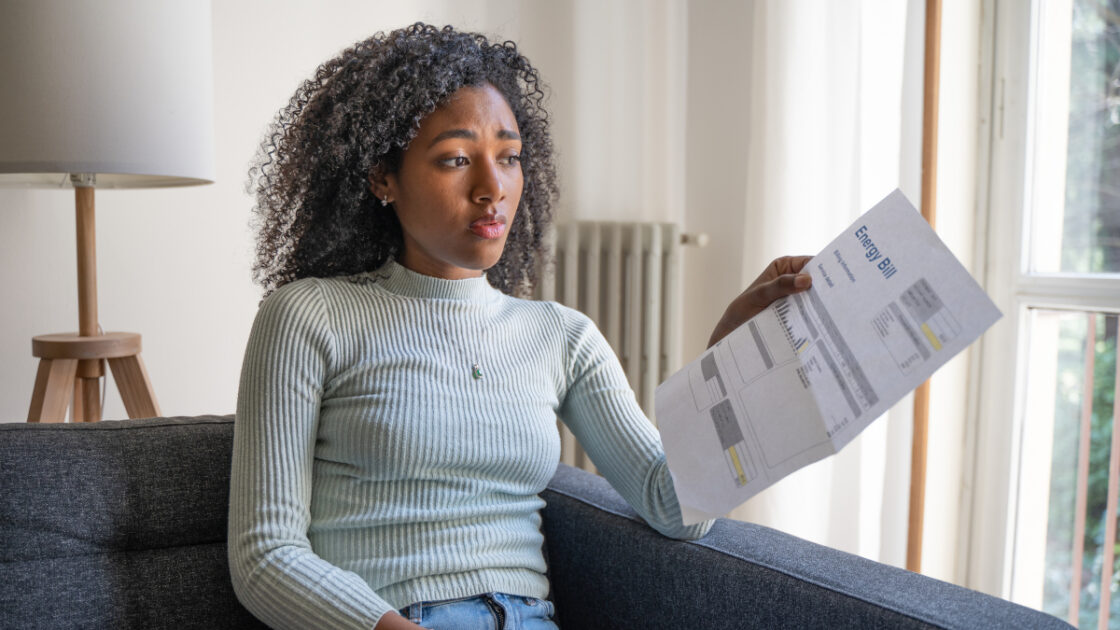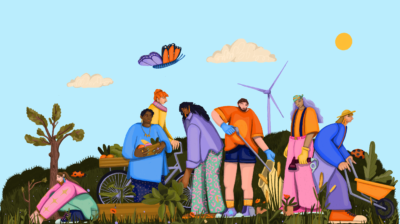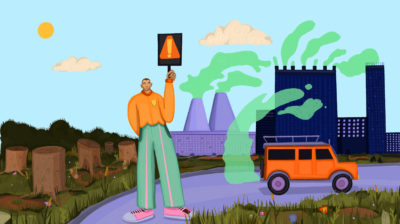What is energy poverty?
Energy poverty refers to the inability to adequately heat or power a home due to the high cost of electricity and fuel.

In Ireland, we all have the right to a good standard of living. Having access to energy for heating and electricity is an important aspect of this right, but as energy prices rise across the world, more and more people are struggling to afford the cost of powering their homes. In Ireland, an estimated 29% of households are experiencing energy poverty, according to the Economic and Social Research Institute.
Energy poverty is a key climate justice issue. Energy poverty highlights the economic cost to a society that is dependent on fossil fuels like coal, oil and gas, for energy. Learn more about energy poverty and what to do if you are worried about paying your energy bills.
In this article:
- What is energy poverty?
- What causes energy poverty?
- What are the effects of energy poverty?
- Energy poverty solutions in Ireland
What is energy poverty?
Energy poverty refers to the inability to adequately heat or power a home due to the high cost of electricity and fuel. Energy poverty is a form of social inequality that must be addressed by government action, particularly during the winter months. Europe is currently experiencing an energy supply crisis linked to the war in Ukraine, which means the price of fuel, heating and electricity rose rapidly in 2022 and 2023, forcing people to spend more money to power their homes.
What causes energy poverty?
Three main factors influence the likelihood of experiencing energy poverty:
- The cost of energy (like fuel, electricity and heating)
- The income of the household
- The energy efficiency of the home (how much energy it requires to heat up and stay warm)
With the cost of energy rising, it is becoming increasingly unaffordable for many people to power their homes, especially if they have a low income and live in an energy inefficient home. When energy bills take up a greater proportion of someone’s income, they may have to go without heating or other necessities to keep costs low. In Ireland, many older houses have a poor Building Energy Rating (BER). A poor BER means the house requires a lot of energy to heat up and keep warm. In general, a house with a poor BER has higher energy bills and contributes more greenhouse gas emissions than a house with a good BER.
Energy poverty is more likely to happen in economies that are reliant on fossil fuels for energy. While the production and use of fossil fuels is one of the main drivers of climate change, it also causes energy insecurity. As climate change accelerates across the world, Ireland is likely to experience colder and wetter winters. Without strong government support and a just transition away from fossil fuels, the number of people experiencing energy poverty may increase.
What are the effects of energy poverty?
There is evidence that energy poverty has serious consequences for health and well-being, including higher levels of respiratory disease and deaths during winter. Experiencing stress and anxiety about paying energy bills may also impact people’s mental health.
Certain groups of people are more vulnerable to energy poverty than others. These groups include:
- People living in rental accommodation
- Traveller communities
- Elderly people
- People living in low-income households
- Lone-parent families
These vulnerable groups may be at a social disadvantage already and are likely to be living in houses with low energy efficiency or unable to keep up with rising energy prices or rent. It is important that any measures taken to combat energy poverty and move away from fossil fuels take the needs and experiences of these groups into account. If not, we risk leaving the most vulnerable in society behind.
Energy poverty solutions in Ireland
One of the most impactful ways to tackle energy poverty is to improve the energy efficiency of houses. This is called retrofitting. Retrofitting involves making changes to a house that is already built to reduce how much energy it needs for heating and electricity. Adding insulation, upgrading windows and doors or replacing the boiler are all examples of retrofitting.
Retrofitting can also include the installation of renewable energy systems such as solar panels or heat pumps. Renewable energy comes from natural resources that can be used repeatedly without running out, and produces little to no greenhouse gases, unlike fossil fuels. As a climate action, retrofitting reduces both energy bills and greenhouse gas emissions, addressing social inequality and the climate crisis at the same time.
As part of the Climate Action Plan, the Irish Government has taken both long-term and short-term measures to address energy poverty. The Government has rolled out grant schemes to help people and communities retrofit their homes, including funded retrofits for low-income households. The Government has also provided allowances for fuel and electricity during the winter months.
Another solution is making renewable energy more affordable and attractive to encourage people to choose renewable energy sources for heating, fuel and electricity over fossil fuels. Transitioning towards renewable energy and away from fossil fuels is key to achieving Ireland’s climate goal of reaching net zero emissions by 2050.
Are you worried about your energy bills? Here’s where you can find support:
- Money Advice and Budgeting Service (MABS) is a free, independent, confidential and non-judgmental money advice and budgeting service. Contact MABS for support if you are struggling with debt, including energy bills
- The Commission for the Regulation of Utilities (CRU) can help with questions about electricity or gas suppliers and consumer rights
- The Sustainable Energy Authority of Ireland (SEAI) has information on home energy upgrade grants and advice on energy efficiency
Feeling overwhelmed by the climate crisis?
- Get anonymous support 24/7 with our text message support service
- Connect with a trained volunteer who will listen to you, and help you to move forward feeling better
- Free-text SPUNOUT to 50808 to begin
- Find out more about our text message support service
If you are a customer of the 48 or An Post network or cannot get through using the ‘50808’ short code please text HELLO to 086 1800 280 (standard message rates may apply). Some smaller networks do not support short codes like ‘50808’.






